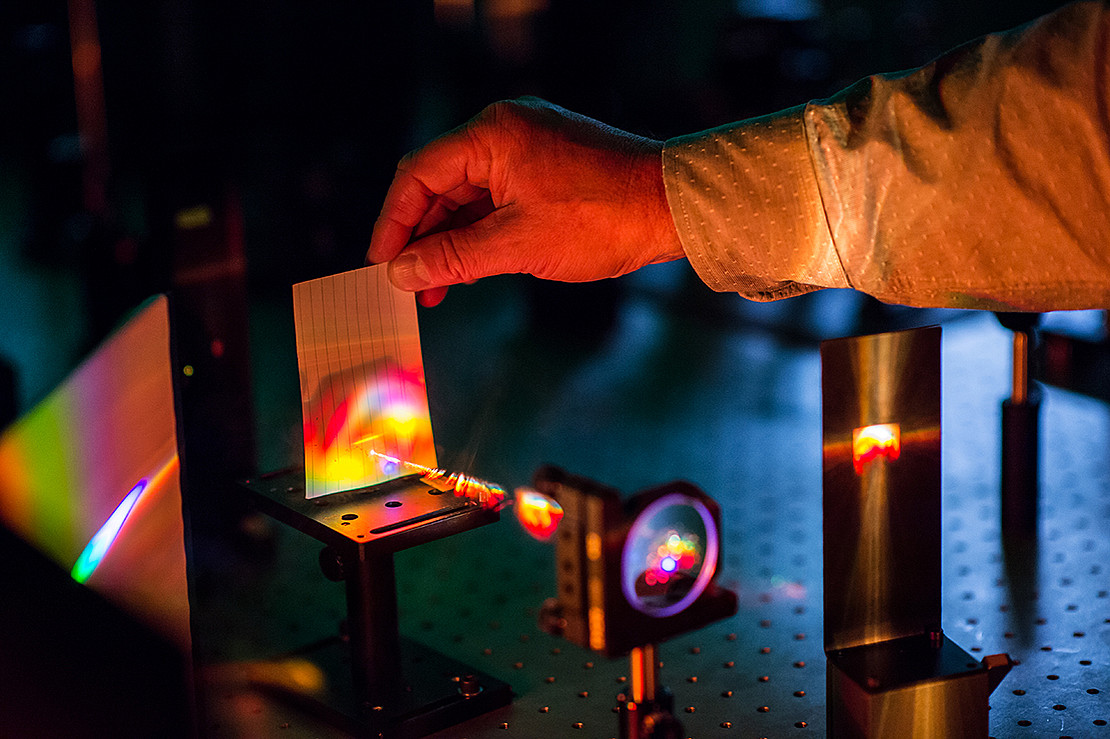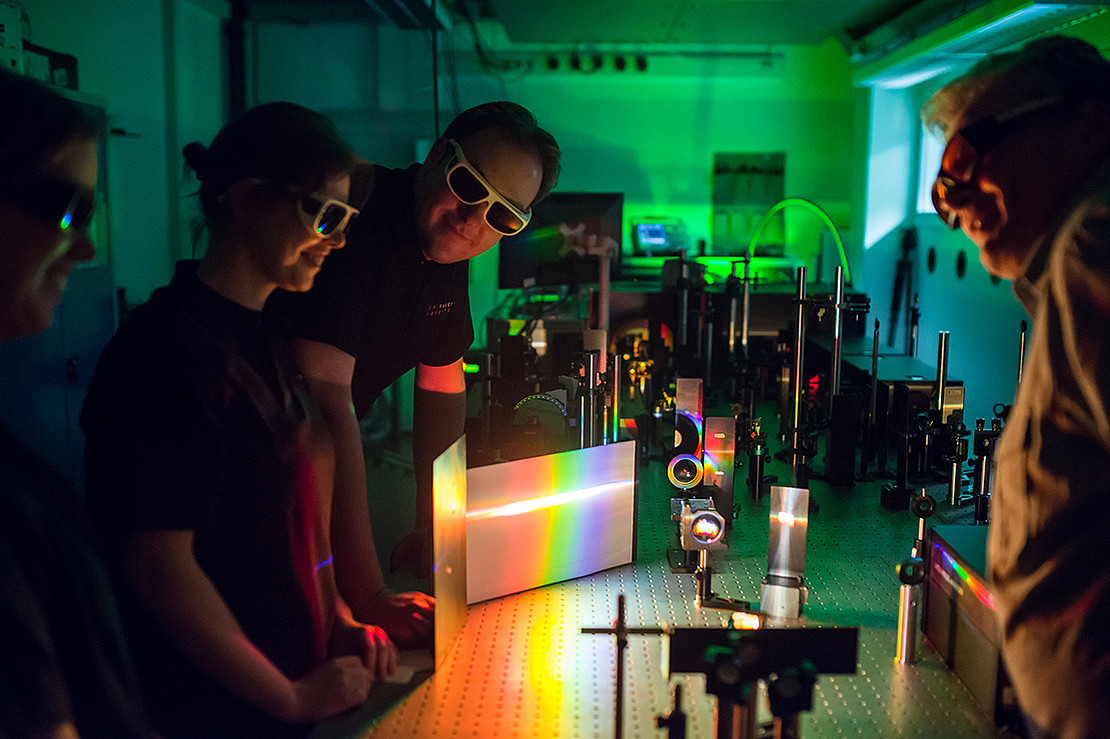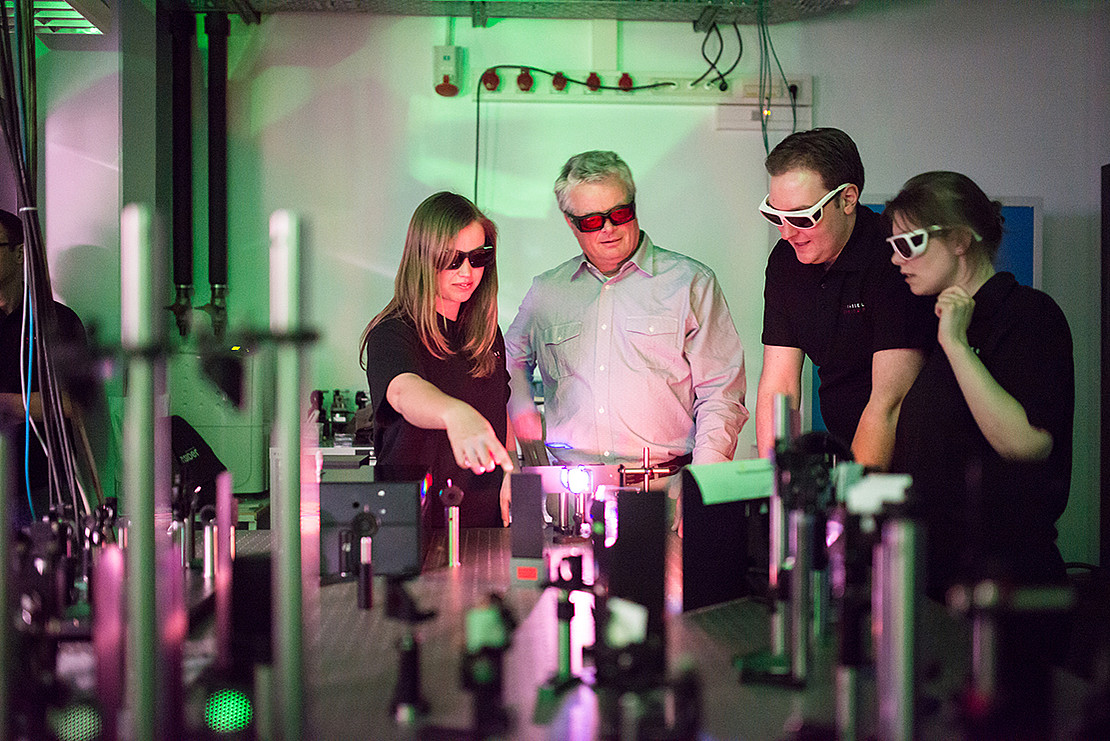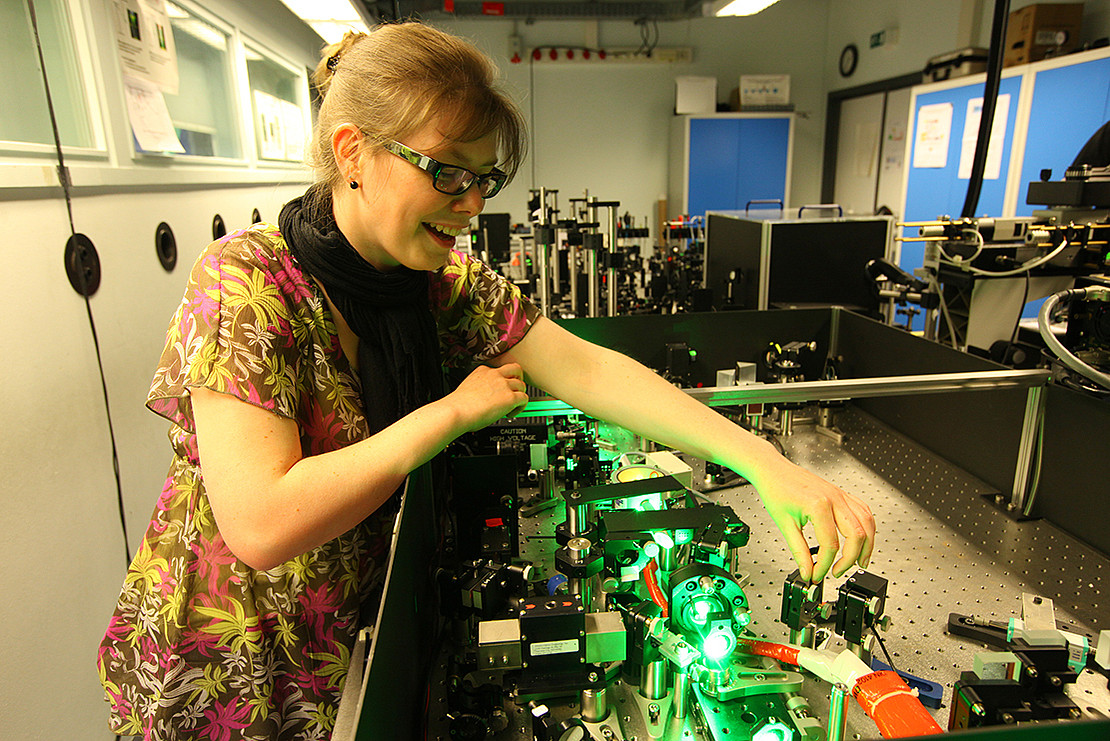Physicists study the smallest elementary particles as well as the vastness of the cosmos. Physics attempts to understand nature, describe it with mathematical models and make predictions about its behavior. Basically, physics is divided into experimental physics and theoretical physics. Its findings are used by the engineering sciences, for example, to develop technical devices and solutions for the major challenges facing our society.
Anyone who feels committed to the scientific and technical world view should consider the six-semester Bachelor's degree course in Physics at the University of Kassel. Admission requirements are the general higher education entrance qualification, the entrance qualification for universities of applied sciences or a corresponding professional qualification (studying without Abitur). The course starts in the winter semester and there are no admission restrictions. For optimal preparation, participation in the preliminary mathematics course is recommended. The content of the Bachelor's degree course is based on the physics subject classification system. These include mechanics, electro- and thermodynamics, atomic and molecular physics, nuclear and elementary particle physics, laboratory astrophysics and quantum mechanics.
At the same time, students acquire the mathematical skills that are essential for dealing with physics. A good command of English makes it easier to deal with specialist literature. The majority of Bachelor's students go on to study for a Master's degree. Career prospects in industry, business and research are attractive and generally less susceptible to economic cycles.




